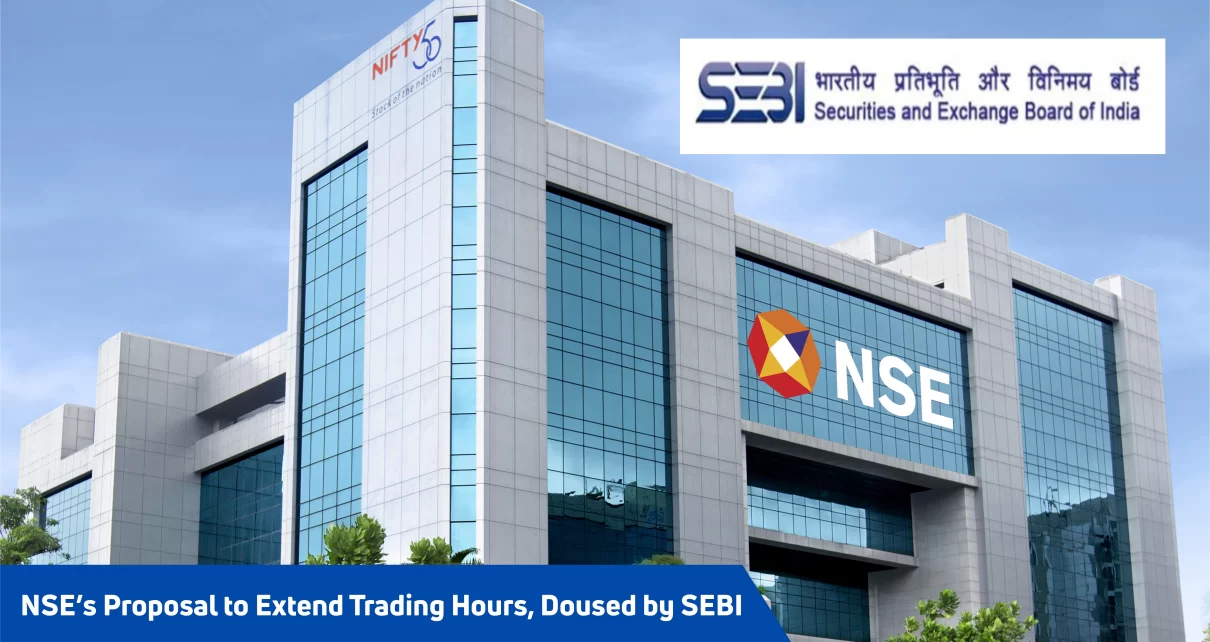The Securities and Exchange Board of India (SEBI) has thrown a curveball at the National Stock Exchange of India’s (NSE) plan to extend trading hours for stock market derivatives. The proposal which aimed to push the closing bell from 6 pm to 9 pm, has been rejected by the market regulator, citing concerns raised by the broking community.
The NSE has proposed the extension in a bid to enhance India’s integration with global markets. Extending trading hours allow domestic participants to react to overseas developments and potentially benefit from increased liquidity. However, the proposal met with resistance from a significant portion of the broking community. Brokers expressed concern about the additional workload and the potential strain on their infrastructure and manpower resources.
According to market anahlysts SEBI’s decision reflect a cautious approach. While extending trading hours would undoubtedly increase the number of transactions, along with other changes, and before making this transition SEBI would like to ensure that all stakeholders are comfortable with the changes before implementing it.
Some people believed that longer trading hours would offer several benefits. Increased alignments with global markets could potentially attract more foreign investment and provide Indian investors with greater flexibility. Accitionally, extending hours could lead to a more efficient price discovery process, reflecting global trends more accurately.
However, opponents highlight potential drawbacks. The extended hours could lead to increased volatility, especially for smaller investors who may not have the resources to monitor markets through the extended session. Additionally, concerns linger about the potential impact on brokerage’s ability to handle additional workload effectively.
Sebi’s decision doesn’t necessarily mean the idea is dead. The regulator has indicated a willlingness to revisit the proposal in the future. However, it’s clear that any future extension will require a consensus among stakeholders, particularly the broking community.




